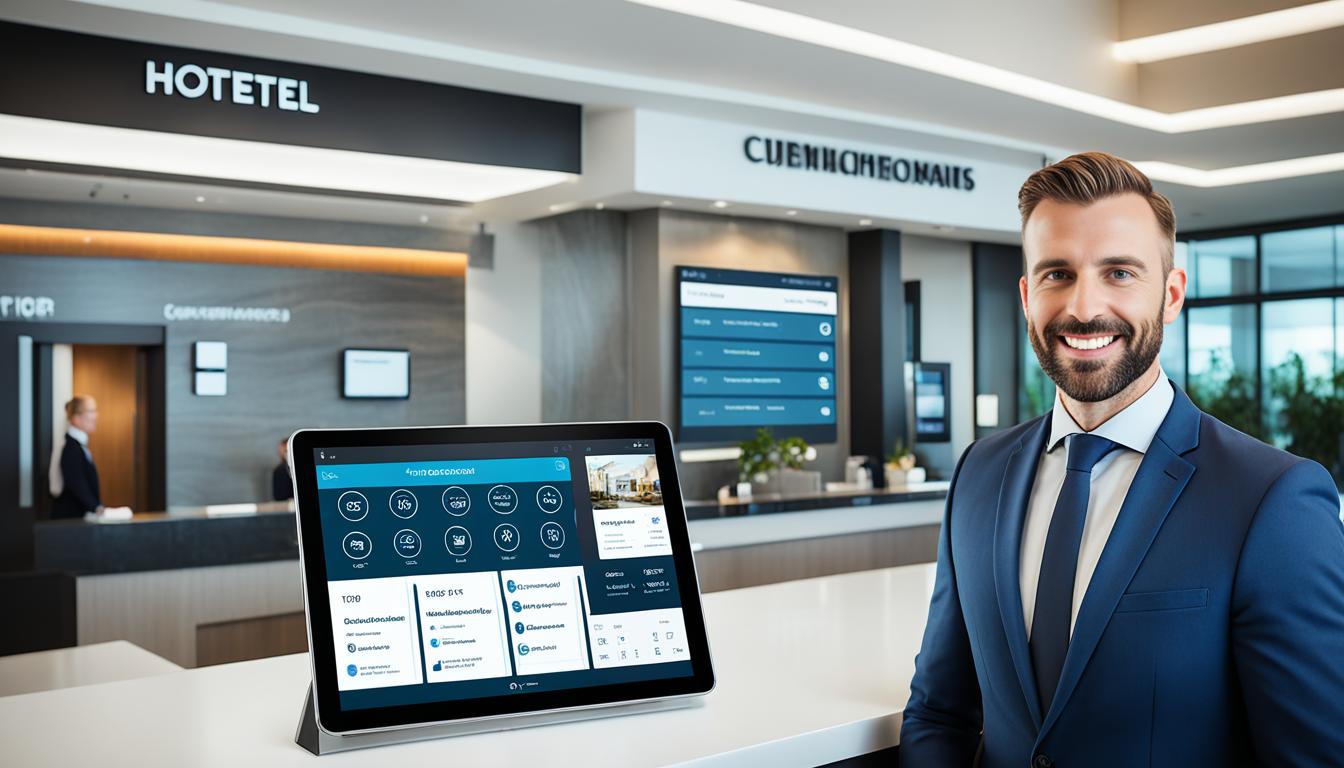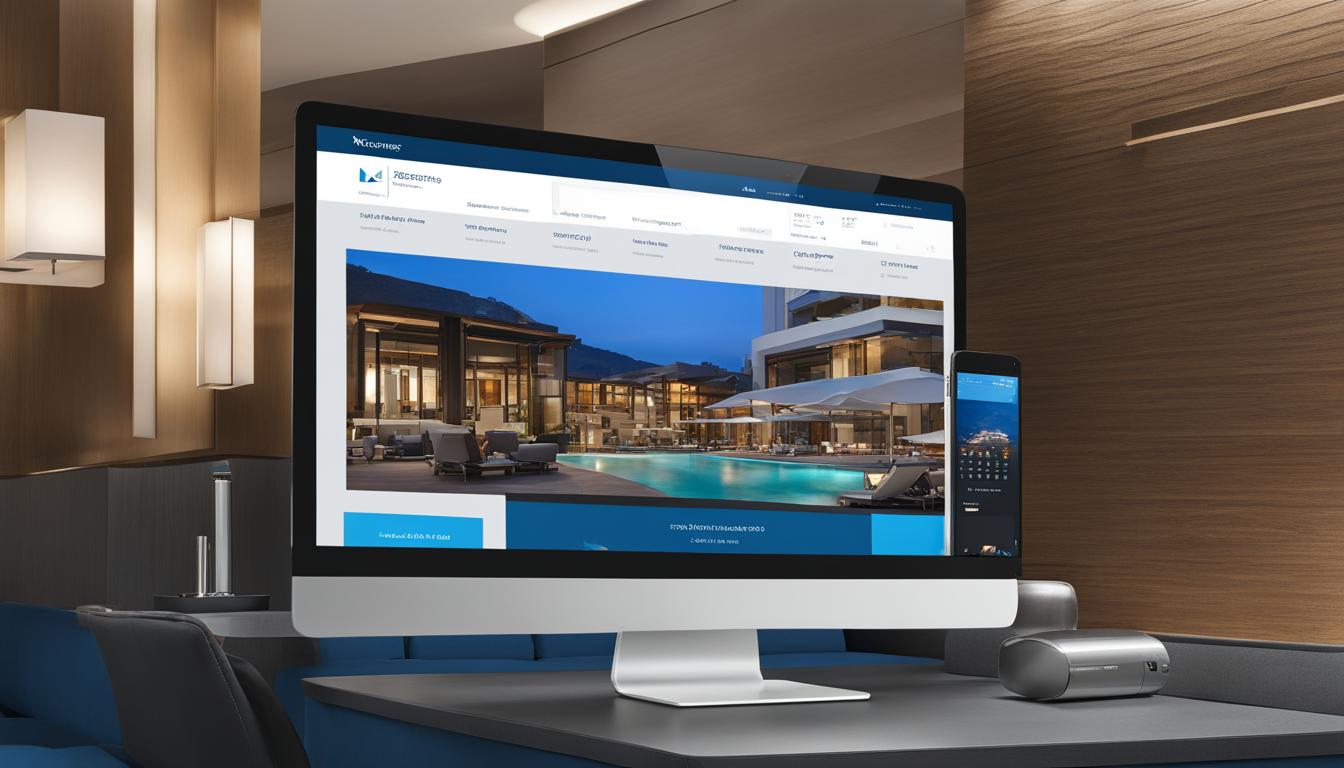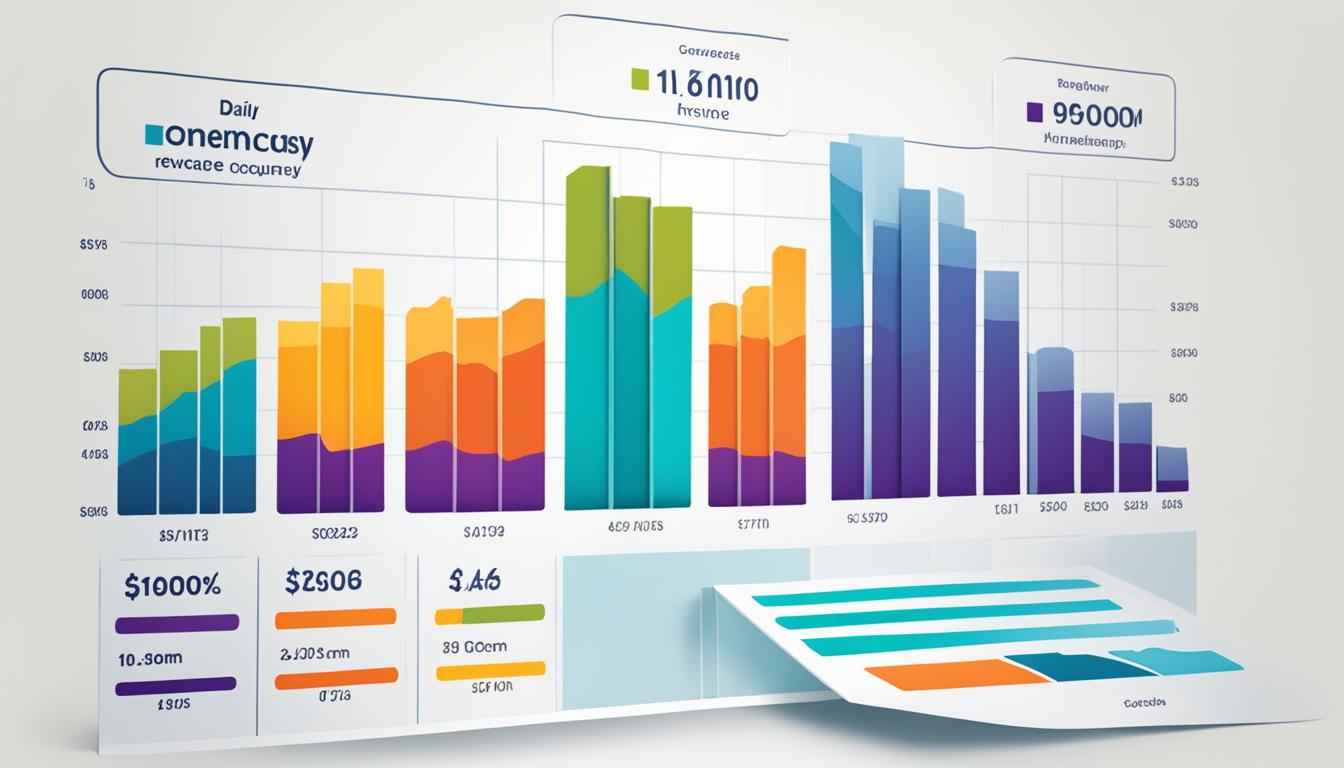Welcome to our guide on effective email segmentation strategies for hotel marketing campaigns. In today’s digital age, personalized marketing has become crucial for businesses to engage with their target audience. Hotels, in particular, can benefit greatly from tailored messaging that resonates with their guests.
Email segmentation allows hotels to divide their email list into specific segments based on various criteria, such as demographics, booking behavior, and preferences. By targeting each segment with relevant and personalized content, hotels can create stronger connections with their guests and drive higher engagement.
In this article, we will explore the benefits of email segmentation for hotel marketing campaigns and provide practical tips on implementing effective strategies. We will also showcase real-world examples of successful email segmentation in the hotel industry and discuss how to measure the impact of these efforts.
Whether you are a small boutique hotel or a large chain, mastering email segmentation techniques can help you deliver tailored messages that resonate with your guests, increase open and click-through rates, and ultimately drive revenue. So let’s dive in and discover how email segmentation can elevate your hotel marketing campaigns!
Understanding Email Segmentation
Email segmentation plays a crucial role in the success of hotel marketing campaigns. It involves dividing an email list into specific segments based on various criteria, allowing hotels to deliver targeted and personalized messages to their guests. By understanding email segmentation, hotels can maximize the effectiveness of their marketing efforts and enhance guest engagement.
Hotel marketing campaigns can utilize a range of segmentation criteria to tailor their messaging. These criteria may include demographics, such as age, location, or gender, as well as booking behavior, such as frequency of stays or preferred room types. Additionally, segmentation based on guests’ preferences, such as interests or travel motivations, can further enhance the relevance of marketing communications.
By segmenting their email lists, hotels can ensure that each guest receives content that aligns with their specific needs and interests. This personalized approach fosters a deeper connection between the hotel and its guests, increasing the likelihood of engagement and conversions.
For example, a boutique hotel targeting business travelers can use email segmentation to create tailored messages specifically addressing the unique needs and preferences of this segment. By highlighting convenient amenities for business travelers, such as a well-equipped business center or complimentary Wi-Fi, the hotel can effectively capture the attention and interest of its target audience.
Furthermore, email segmentation allows hotels to deliver timely and relevant offers and promotions to their guests, further driving engagement and revenue. By identifying different guest segments, such as families or loyalty program members, hotels can customize their campaigns to cater to the specific interests and preferences of each group.
Understanding email segmentation is essential for hotel marketers looking to optimize their campaigns and enhance guest satisfaction. The subsequent sections of this article will explore the benefits of email segmentation, practical implementation strategies, real-world examples, and methods for measuring its impact.
Benefits of Email Segmentation for Hotel Marketing Campaigns
Email segmentation is a powerful strategy that can greatly enhance the effectiveness of hotel marketing campaigns. By tailoring messages to specific segments of your audience, you can significantly improve open rates, click-through rates, and ultimately, conversions. The key to successful email segmentation lies in delivering personalized messaging that resonates with each guest segment.
One of the primary benefits of email segmentation is the ability to target different guest segments with relevant offers and promotions. For example, business travelers may appreciate exclusive discounts on meeting room rentals, while families may be more interested in packages that include kid-friendly activities. By understanding the unique preferences and needs of each segment, hotels can deliver tailored messages that capture their attention and drive engagement.
Segmentation also allows hotels to send targeted emails based on the guest’s booking behavior. For instance, if a guest frequently books weekend getaways, the hotel can send them special offers for upcoming weekends. This personalized approach not only enhances the guest’s experience but also increases the likelihood of conversion.
Furthermore, email segmentation enables hotels to send timely and relevant messaging, resulting in higher customer satisfaction. By understanding where each guest is in their customer journey, hotels can send appropriate and helpful information at each stage. For example, sending a welcome email to new guests with information about hotel amenities and nearby attractions can make them feel valued and excited about their upcoming stay.
Lastly, email segmentation provides valuable insights into guest behavior and preferences. By analyzing data from segmented campaigns, hotels can gain a deeper understanding of what resonates with each guest segment. This data can then be used to refine and optimize future marketing efforts, ensuring that each email campaign is more effective than the last.
In conclusion, email segmentation is a powerful tool for hotel marketing campaigns. By employing tailored messaging and providing relevant offers, hotels can significantly improve open rates, click-through rates, and conversions. With the ability to target different guest segments and gain valuable insights, email segmentation is an essential strategy for hotels looking to maximize their marketing ROI.
Implementing Email Segmentation Strategies
When it comes to hotel marketing campaigns, implementing effective email segmentation strategies is crucial. By dividing your email list into specific segments, you can tailor your messaging to resonate with different groups of guests, resulting in higher engagement and conversion rates.
To successfully implement email segmentation, it’s essential to start with thorough data collection. Gather relevant information about your guests, such as demographics, previous bookings, preferences, and interests. This data will serve as the foundation for creating targeted segments.
Once you have collected the necessary data, you can define your segmentation criteria. Consider factors like age, location, booking behavior, and guest preferences to create segments that reflect the diverse nature of your customer base.
Automation tools can greatly streamline the email segmentation process. Use email marketing platforms or customer relationship management (CRM) systems that offer segmentation functionalities. These tools enable you to automate the segmentation process based on predefined rules, ensuring that the right messages are sent to the right segments without manual intervention.
Remember to regularly review and refine your segmentation strategies. Continuous analysis of your segmentation performance will help you identify areas for improvement and optimize your campaigns further. A/B testing can also provide valuable insights into the most effective messaging for each segment.
Implementing email segmentation strategies requires careful planning, execution, and ongoing optimization. By personalizing your marketing efforts through segmentation, you can enhance guest satisfaction, drive conversions, and ultimately maximize the effectiveness of your hotel marketing campaigns.
Examples of Email Segmentation in Hotel Marketing Campaigns
Email segmentation is a powerful strategy employed by hotels to tailor their marketing campaigns toward specific guest segments. By dividing their email list into targeted segments, hotels can deliver personalized messages that resonate with their audience, resulting in higher engagement and conversion rates. Let’s explore some real-world examples of how hotels have effectively implemented email segmentation in their marketing campaigns.
Segmenting Business Travelers:
A luxury hotel chain, ABC Hotels, leveraged email segmentation to engage business travelers effectively. By analyzing booking patterns and preferences, ABC Hotels identified a segment of high-spending business travelers. They created personalized emails that highlighted exclusive services and amenities designed for professionals on-the-go. The result was a significant increase in bookings and customer satisfaction within this specific segment.
Segmenting Families:
XYZ Resorts, a family-friendly hotel brand, used email segmentation to target families with young children. They created segments based on guest history and preferences, such as past stays with children or requests for child-friendly amenities. XYZ Resorts then sent tailored emails featuring discounted family packages, on-site activities for kids, and nearby attractions suitable for families. This approach led to higher open rates and increased bookings from their target audience.
Segmenting Loyalty Program Members:
123 Hotels, a chain with a robust loyalty program, implemented email segmentation to engage their loyal members effectively. They utilized segmentation criteria such as membership level, past stays, and preferences. By personalizing their emails with exclusive rewards, discounts, and bonus points, 123 Hotels increased member engagement and loyalty. This resulted in higher repeat bookings and elevated customer satisfaction within their loyalty program segment.
Implementing email segmentation strategies like these examples can significantly enhance the effectiveness of hotel marketing campaigns. By sending tailored messages to specific guest segments, hotels can improve customer engagement, conversions, and overall revenue. The next section will explore the importance of measuring the impact of email segmentation in hotel marketing campaigns.
Measuring the Impact of Email Segmentation
In order to gauge the effectiveness of email segmentation in hotel marketing campaigns, it’s crucial to track key metrics and analyze the results. By measuring the impact of segmentation, hotels can fine-tune their strategies and optimize their campaigns for better engagement and conversion rates.
One of the key metrics to monitor is the open rate. This metric indicates how many recipients opened the email, and it provides insights into the effectiveness of the subject line and overall email appeal. By comparing the open rates between different segments, hotels can identify which segments respond more positively to their messaging and tailor future emails accordingly.
Click-through rates are another important metric to consider. They indicate the number of recipients who clicked on links within the email, suggesting interest and engagement with the content. By comparing click-through rates across segments, hotels can identify which segments are most receptive to their offers and content, allowing them to better target their marketing efforts.
Ultimately, the most critical metric to measure when assessing the impact of email segmentation is the conversion rate. This metric measures the number of recipients who took the desired action, such as making a booking or signing up for a loyalty program. By analyzing conversion rates across segments, hotels can determine the success of their segmentation strategies in driving actual revenue and ROI.
To optimize the effectiveness of email segmentation, hotels should also conduct A/B testing. This involves creating two variations of an email, with one segment receiving one version and another segment receiving a slightly modified version. By comparing the performance of these variations, hotels can identify which messaging and content resonates better with each segment.
It’s important to regularly analyze data and gather insights from email campaign performance. By examining trends, patterns, and segment behavior, hotels can continuously refine their segmentation strategies and adapt their messaging to better suit their target audience.
By measuring the impact of email segmentation through tracking and analysis, hotels can gain valuable insights that drive the success of their marketing campaigns. With data-driven optimization, hotels can deliver tailored messages that resonate with their guests, ultimately leading to higher engagement, conversions, and revenue.
Conclusion
In conclusion, email segmentation plays a crucial role in hotel marketing campaigns. By dividing your email list into specific segments based on criteria such as demographics, booking behavior, and preferences, you can deliver tailored messages that resonate with your guests. This not only increases open rates and click-through rates but also boosts conversions and revenue.
Implementing effective email segmentation strategies is key. Collecting relevant data, defining segmentation criteria, and utilizing automation tools can streamline the process and ensure accurate targeting. Real-world examples demonstrate the effectiveness of segmentation strategies in reaching different guest segments, such as business travelers, families, and loyalty program members.
Measuring the impact of email segmentation is essential for optimizing your strategies. Tracking key metrics such as open rates, click-through rates, and conversion rates allows you to refine your segmentation approach and achieve better results. Remember to harness the power of A/B testing and data analysis to continually improve your campaigns.
As hotels continue to navigate the evolving landscape of digital marketing, email segmentation remains a valuable tool for engaging guests and driving revenue. We encourage you to adopt and refine your segmentation strategies, keeping in mind the unique preferences and needs of your target audience. For any further assistance or inquiries, please contact [email protected]. We’re here to help.







